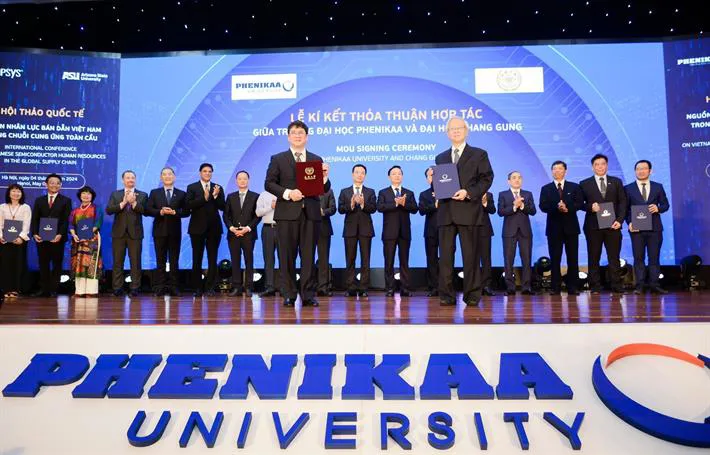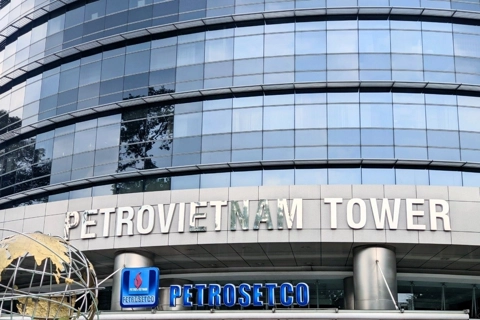Companies, universities team up to develop semiconductor workforce in Vietnam
The Vietnamese government is working with institutions and companies to promote semiconductor innovation and production.
Phenikaa Group and universities, including Arizona State University (USA), Chang Gung University (Taiwan), and companies such as Synopsys, SiCADA, and VMO Holding Technology JSC signed an agreement to train semiconductor workers during the "Vietnam Semiconductor Workforce in the Global Supply Chain" conference in Hanoi on May 4.
| The signing ceremony of the strategic cooperation agreement. Photo: moet.gov.vn |
Speaking at the event, Ho Xuan Nang, Chairman of the Phenikaa Group and General Director of the Phenikaa University Council, emphasized the importance of building strong ties among government agencies, universities, and industry companies to advance the training of semiconductor talent.
He added that the unique nature of the semiconductor industry and its workforce requires a collaborative effort to achieve a high level of efficiency.
At the event, Deputy Prime Minister Tran Hong Ha witnessed the launch of the Semiconductor Workforce and Research Training Alliance, jointly established by Phenikaa University and the seaside city of Danang through a public-private partnership (PPP).
This alliance aims to optimize existing resources through sharing, modern training management models, and industry-recognized certification programs. The goal is to produce high-quality semiconductor talent for domestic and international markets.
Deputy Prime Minister Ha praised Phenikaa Group's bold and determined commitment to the semiconductor industry by building an ecosystem that includes education, research, technology and industrial manufacturing.
He also recognized Danang's and other partners' involvement in infrastructure investment, workforce development, and creating specific action plans to support Vietnamese semiconductor talent development.
He reaffirmed the Government's commitment to working with educational institutions and businesses to create an enabling business and academic environment that encourages semiconductor innovation, R&D and manufacturing.
| Deputy Prime Minister Tran Hong Ha speaks at the event. Photo: VGP |
He emphasized that in order to achieve the goal of training tens of thousands of highly skilled semiconductor workers, priority should be given to developing and attracting highly qualified teachers and lecturers with deep expertise in the field. In addition, the provision of specialized training programs and the creation of an environment for continuous research and updating of knowledge are also crucial, the Deputy Prime Minister added.
Ha underlined that the semiconductor industry is the foundation of the modern electronic industry and plays a crucial role in many technological solutions.
Systems such as energy, transportation, information technology and computing, as well as advances in artificial intelligence (AI), the Internet of Things (IoT), big data, 5G communications, supercomputing, automation, defense and security, all rely on the strong development of the semiconductor industry, he said.













